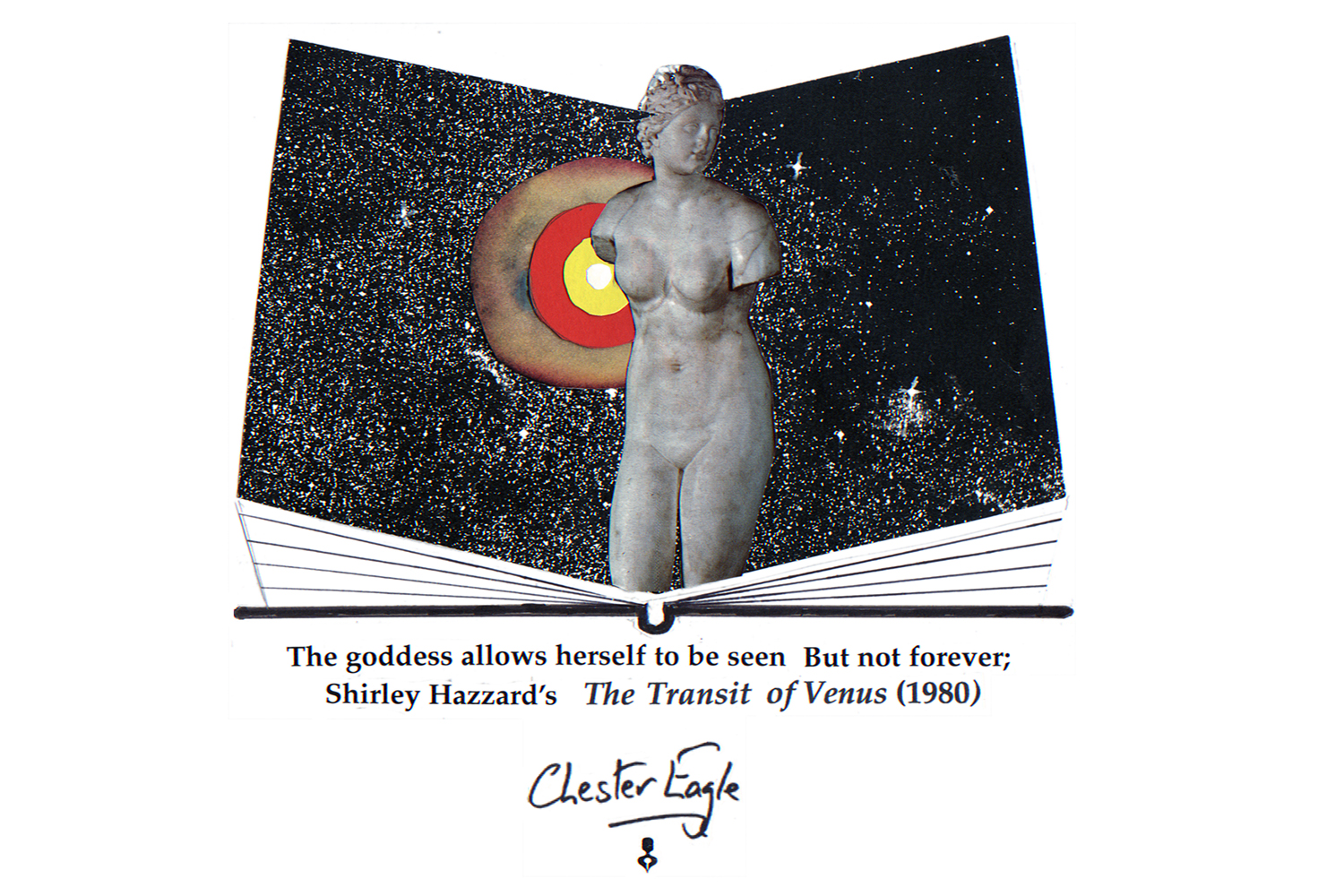18. The goddess allows herself to be seen. But not forever; Shirley Hazzard’s The Transit of Venus (1980)

18: The goddess allows herself to be seen But not forever; Shirley Hazzard’s The Transit of Venus (1980)
The goddess allows herself to be seen But not forever; Shirley Hazzard’s The Transit of Venus (1980):
I began the previous essay by saying that writers belong to their time; Shirley Hazzard was born in 1931, half a generation after Jessica Anderson, yet they are alike, I think, in possessing a certain wariness about the times and places shaping their work. In Shirley Hazzard’s case, this is most obvious in the satirical, indeed sarcastic way she treats the United Nations in People in Glass Houses (1967); after reading it I can imagine the famous filing cabinet not wanting any more writers within its walls. She’s lived in Europe too, and before I get onto The Transit of Venus, her most highly regarded novel, I want to dip into The Bay of Noon (1970) because it contains a passage which I find evocative of an Australian writer’s awareness of having found another, and very different, home. The book’s set in and around Naples (the isle of Capri’s visited frequently, in the Neapolitan way) but the passage I want to quote is set in Seville:
Watched over by a sombre waiter and one or two wintry guests, the two of us made up, from a dish of salted crackers formed in letters of the alphabet, love-words that we spread out on our little table. We had managed to compose an indecent phrase or two before the waiter’s approach forced us to eat our words. Looking out our bedroom window before dawn we saw a group of cab-drivers in the street below warming themselves at a bonfire lighted on the pavement, while one of their number read to them from an outstretched newspaper. The following morning we were told that the Pope had died. [read more]



